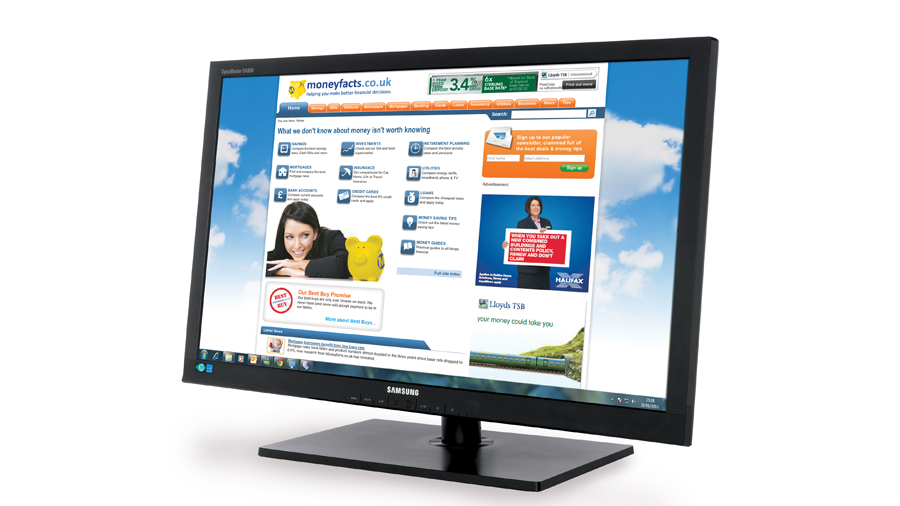
Sign up for breaking news, reviews, opinion, top tech deals, and more.
You are now subscribed
Your newsletter sign-up was successful
Are you currently out of employment, or just tired of the office rat race? Do you an idea that you think would be good enough to start a business with? It's never been easier to start out on your own. Everything you need to run a productive office is available for you at home on your desktop - often for free.
Thanks to online tools and apps, it's now possible to set up and run a business for minimal cost. Developments like dedicated business advice sites, rented or free cloud storage, free document and spreadsheet software, free email and instant messaging services, and even free web domains and hosting mean that you don't always need the traditional office infrastructure behind you to start out.
There is very little stopping anyone from creating their own business online, and we're confident you could set up a small scale project for free if you follow our advice, at least for the first year. The only thing you need to worry about is having a great idea and the determination to see it through.
Never before has so much help been available to wannabe entrepreneurs. With only a few clicks, and generally free of charge, you can draw inspiration, find sources of finance, create an online home for, run, market and staff your business - all through a web browser.
You can even keep and back up all your resources to the cloud, meaning your 'office' can be anywhere in the world. Business start-ups have never had a freer time of it, both in terms of expense and location.
So whether you're out of work or just fancy trying something new, PC Plus is here to show you how to use your PC and the web to create a professional business from the comfort of your own home.
Let's make no bones about this - deciding to create a business from scratch is a big decision, and one that needs drive and true commitment to see it through to the end. You have to believe in yourself and your idea, because if you don't, no one else will. There will be struggles ahead, but if you have the endurance to see it through to completion, you'll find lots of online advice, services and apps to help you do so. Let's get started.
The big idea
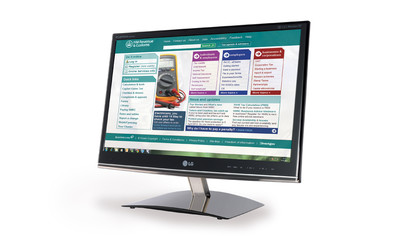
The first step is to come up with your business idea. Sadly, this is the one area we can't help with. That said, it's wise to stay within an area where you have some expertise.
Sign up for breaking news, reviews, opinion, top tech deals, and more.
This isn't just because otherwise you'll need to get training or spend a long time researching your target market, but also because potential investors and customers will want to see a track record of experience before they trust you with their money or their business. Starting out in a new field with no support behind you, although possible, can be a time-consuming and tough way to begin a business.
On the internet it seems a lot of the major success stories come from exploiting a niche. Creating an innovative service or offering - or even just tweaking an idea that already exists - can be very profitable. Remember, if you can offer a better, more efficient or cheaper solution to a problem than your competitors, then half the battle is won. The other half of is letting people know about the service you're offering, but more on that later.
If you're struggling to come up with an idea, although it's usually better to think of something by yourself, there's nothing stopping you looking online for inspiration from others. There are websites that list various problems or needs to which you can offer solutions.
One such place is www.challengepost.com. It offers challenges from companies, charities and governments to see if the general public can help solve them, usually for a cash reward. Entry is free, so if your area of expertise can be used to answer one of these problems, you have nothing to lose by getting involved.
Test the water
What if you already have an idea, but aren't sure if a market exists for it? There are also places online where you can test out your ideas with the general public, and even pick up funding if people believe strongly enough in your concept. One example is KickStarter, a crowd-funding platform for creative ideas.
Whether you're an artist, designer, inventor, musician or explorer, KickStarter could provide you with the money to make your idea come true. All you have to do is describe your project, say how much you want to raise, and if enough people like the idea to fund it to that level, you get the money.
Project creators keep 100 per cent ownership and control over their work. It may sound too good to be true, but there have already been some high-profile success stories. For example, the people behind Diaspora, an open-source competitor to Facebook, used KickStarter to raise over $200,000 to get started, and TikTok and LunaTik raised $280,000 for their invention that turns an iPod Nano into a wrist watch.
So, what's the catch? Well, KickStarter keeps five per cent of the money raised, and if you don't hit your funding target you don't get anything. Still, it provides a no-win no-fee way to decide if you can make money with your idea, as well as possibly providing the funds to get it off the ground.
Make a plan
Once you've got your idea and are confident you can make it work, it's a very good idea to spend some time developing it into a full, workable business plan. This is a maxim trotted out by many a business advice site, and although it's a task most people find as welcome as having to write a CV or covering letter, there is little doubt that it's a very useful exercise. It helps concentrate the mind on how you can profit from your idea, and how the operation will work.
In your business plan, you need to outline exactly how you see yourself making money from your idea, demonstrate that there is a real need for your product or service, research your competition, and describe how you hope to build your business up over time. It also means that if you're looking for funding, you can use your business plan to demonstrate that you have thought about all the points a
potential investor will be worried about.
Business types
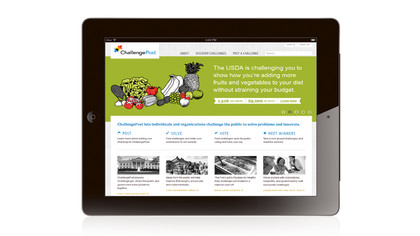
One of the first decisions you need to make is how you want your organisation to operate. You don't need to go straight into making a company - you can also trade under your own name as a sole trader, or form a partnership with someone else.
Remember though, if you operate as a partnership or sole trader, legally the person or people and the business are one and the same. All financial risks are taken by that person or people, and all your assets are included in that risk.
A limited company exists in its own right. This means the company's finances are separate from the personal finances of its owners. The members of the company (or its shareholders) are not responsible for the company's debts unless they have given guarantees - for example, a bank loan.
Companies also usually have the ability to attract more funding. As the name suggests, companies need to consist of more than just one person, so you need to consider if you can work with others for the lifetime of your project. You also need to register at Companies House, and provide it with your company's accounts once a year. If you think this might be right for you, see Business Link, the British government's online resource for businesses.
Choose a bank
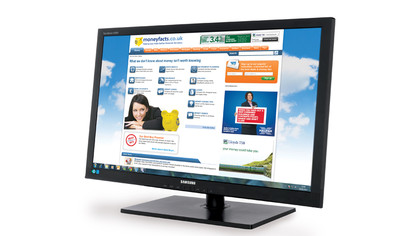
One of the most important aspects of starting your own business is to set up a business bank account. Do this as soon as possible, as it lets you separate personal incomings and outgoings from those of your business. As long as you pay everything out of this account (after transferring whatever investment or savings you are willing to invest into it first), you will have a calmer, stress-free time when it comes to preparing your accounts. Just like personal banking, you can check your business account online 24/7, and pay your bills instantly from the comfort of you own home.
Most banks are very keen to get your banking business, with some offering interest-free overdrafts or totally free banking for a couple of years - or even for life. Business banking usually involves slightly higher fees than personal banking, so it's well worth seeking these deals out. To find out which bank will give you the best deal, check out places like Money Supermarket, MoneyFacts.co.uk, Money.co.uk or, of course, the individual bank's website.
New business is the lifeblood of banking, so most high street banks have a lot of advice and other benefits they are willing to share with start-ups for free, and often offer business guides on their websites. As well as introductory free banking periods, it's worth looking out for services like local business managers, 24-hour business support and free accounting software.
Remember, these people deal with organisations like yours every day, so it's likely they'll be able to help or point you in the right direction when you experience the usual teething problems that come with starting a new project. It's also likely that these business bank managers will be among the first people to see your completed business plan, so ask them for as much feedback as possible. Any constructive criticism will be essential at this stage, and you can get it for free.
The other thing to consider when choosing a bank is how readily it lends new businesses money. This can be in the form of overdrafts or loans, or by helping find grants or other funding. It's worth enquiring about what financial solutions each bank can offer you when you're choosing your account, even if you don't need any funds at the start. You may be solvent now, but it's important to prepare for all eventualities.
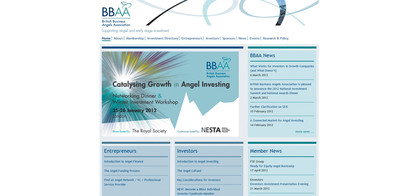
There are other ways to find money to get your business started, apart from family and friends or bank overdrafts. For example, there is a guaranteed loan called the Enterprise Finance Guarantee (EFG) for small businesses with no security. The government offers to bear 75 per cent of the risk of default on the loan, making you a more attractive proposition for the banks.
You may also be able to get grants to help you set up your business. These come from a variety of sources, including local government authorities, the EU and regional regeneration schemes. A good place to start is Business Link's grant finder, which lets you search by sector, location or even keyword for an appropriate grant. It's also worth checking out smallbusiness.co.uk.
Your eligibility for a grant usually depends on your location, and England, Ireland, Scotland and Wales all have their own systems. There are also 'special locations' that attract extra funding - if an area has a particular need for a type of skill or employment, for example.
Some specific business areas also have their own funding, like eco-friendly businesses, which can apply for their own 'green' grant. Other areas can attract funding from Europe too - the European Commission on National Regional aid has divided the UK into tiers, with new businesses in tier one areas more likely to be awarded money if they help safeguard or create jobs to help increase regional prosperity. Examples of tier one areas include Cornwall, Merseyside, and West Wales and the Valleys. If you live in one of these areas, it's well worth having a look.
It may also be worthwhile approaching business angels or venture capitalists. Venture capitalists are typically companies investing other people's money in businesses in the hope of making them a return, whereas business angels are usually wealthy individuals investing their own money (and often experience) into your company - think Dragons' Den, but a lot less confrontational.
Note that these investors are usually only interested in businesses that are (or want to become) limited companies, as they will want an equity share of your business. Both usually get involved later to help grow your business, but if your idea is good enough, it may be possible to get them to help from the start.
A water-tight business plan is essential, and you must have done your research so you can answer any questions. For a list of venture capitalists and business angels, try Business Link or www.bbaa.org.uk.
Keep records
It's essential that you keep business records from day one. Although there are famous accounting packages out there from the likes of Sage, Quickbooks and Moneysoft, you're unlikely to need anything that powerful when you start out. In fact, a spreadsheet program like Microsoft Excel will let you record all the information you need to present to your accountants at the end of your financial year.
You could even go completely free by using Google Docs or Microsoft's Web Apps (cut-down online versions of Word and Excel). Just record information about each invoice or purchase order - date, description, cost (and VAT included if needed) - on one spreadsheet tab, and put your bank details on a second tab. Most online banks let you download your bank transactions as a CSV file, which you can paste into Google spreadsheets without a problem. Then it's just a case of matching up the invoice with the bank transaction.
As long as you can show what each cost or bit of income is on your bank statement, your accountant will be happy, and as you can access Google Docs from your phone, it's easy to keep a tally of any expenses wherever you are. You can also use Google Docs or Web Apps to create professional looking invoices and write business letters, so there's no need to invest in costly business software.
It really is best to note everything down as you go along. If you make a habit of it from the start, you'll avoid a whole world of 'now what did I spend £15.99 on in August 2010?' pain. Keep receipts, bills, POs and invoices. If you have a scanner, it may be better to scan all of these as you go along and name them by date to make them easier to find.
Then, when it's accounts time, you can just email your online copies along with your spreadsheet and downloaded bank statements, or use a service like Yousendit or Dropbox to share the data with your accountants without having to carry your bundle of precious receipts round to their office (or entrust them to the postal service if your accountants are further away). Remember, if you've scanned your documents, you can easily back them up to a cloud service so you don't lose them if your PC fails (see below).
You need to keep a record of anything that's classed as a legitimate business expense. This includes the cost of the software you're keeping your records on, the cost of your broadband (you will be able to claim a certain percentage as a business cost), travel expenses to get to meetings, and even a percentage of the electricity and heating costs for the office in your house.
Cloud storage
Another thing to consider when making the move from an office environment to a home-based business is where you store and back up your files without the servers and infrastructure offered by larger companies.
Fortunately, there are many online solutions for this. For example, Dropbox offers 2GB of free file storage that will be synced to any linked computer automatically, and will be available to download from www.dropbox.com from any web browser. Once installed, Dropbox appears as a folder called Dropbox in your Documents folder - the difference being that whatever you copy into this folder is automatically uploaded on to the Dropbox servers. Install the software on another computer, log on using the same details, and the files will be downloaded to that computer automatically.
It's pretty secure too; it uses AES-256 encryption over an SSL encrypted channel to share and save your data. The nice thing about using Dropbox is that as well as giving you easy access to all your business files, it backs them up online as well.
Dropbox isn't your only option. Other possibilities include SugarSync, which offers 5GB of free storage. There's also Google Documents, which has a 1GB limit for uploaded files (but no limit for files you have created yourself using Google Docs), and Microsoft SkyDrive and Live Mesh, which offer 25GB of free online storage and let you create documents using Web Apps. Like Dropbox and SugarSync, Skydrive will also synchronise your files across any computers that have the Microsoft Live Mesh client installed.
Pick a name
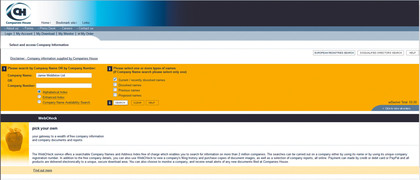
A descriptive, memorable name will help customers find you in web searches and make it more likely that people will associate your name with the services you offer. It will also help with advertising. As any radio advertiser will tell you, it's best to make the name descriptive and short. The best names describe the services you are offering (or at least give potential customers a clue about them), leaving your customers in little doubt about what you're offering when they click your link.
Of course, you might look around the web at names like eBay, Amazon or Google and say that these don't represent the services provided, but remember these companies have been around for a long time, and have seen off a lot of other oddly-named services that are now long forgotten.
They also aren't entering the crowded marketplace the web has become today. You can go down the Funky Pigeon/Moonpig route, whereby you just concentrate on people remembering the strange name, but remember that an awful lot of advertising money has been spent getting those catchy jingles into your head.
When it comes to your name, you must be flexible. It must be available as a website domain name, and it's worth seeing what names are available on Companies House. No two companies can have the same name, and even if you aren't considering becoming a limited company when you start out, it's worth checking if your name is taken in case you want to become one in the future. You can do this at Companies House.
Even if your desired name has been taken on Companies House, you can trade under another name - so your company is called one thing, but you sell your products under another. If you do this, you must put both names on all your official stationery and invoices. Just make sure you aren't encroaching on somebody else's territory.
If you set up an online store and call it Tesco, this is called 'passing off' and will get you into trouble from trademark lawyers. The services you offer must be far enough removed from any competitor with the same name for there to be no confusion by potential customers. It's therefore best to steer well clear of any recognisable brand names.
To check out the availability of the website name, any web hosting company like www.lcn.co.uk will let you look up which domain names are still available. A .com domain name is the most expensive type, but you can usually rent a .co.uk name for less than £10 a year.
In fact, it's possible to get an available .co.uk address including hosting completely free for a year, provided you don't mind using the Yola website creation tools to create your site. This means you can try out your business idea for 12 months without incurring any costs getting your site online.
Find a mentor
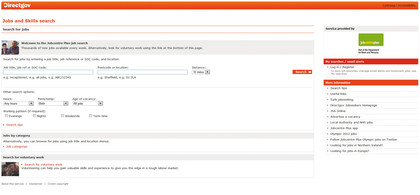
Running your own business without the support of others can be terrifying, and can really slow down the decision-making process. Often the lack of people to sound out your ideas with and the absence of another perspective can slow things to a crawl. This is where business mentoring can be useful. The five largest banks provide a mentor-finding scheme at www.mentorsme.co.uk, affiliated with the British Bankers Association and backed by the UK government.
It's important to stress that mentors don't provide specific technical business advice that would normally be provided by an expert business advisor. A good mentor will refer you to business advice experts for that kind of support. Instead, you should see them as a source of unbiased assistance and guidance, offering help with decision-making and an external perspective. They will come into your business without the emotional ties you have, and will be able to provide you with no-nonsense perspective and expertise.
Although some mentoring schemes may cost you money, around 250 of the business mentors accessible through Mentorsme are current and former high-street bank staff who have volunteered to mentor businesses for free. The organisation hopes this will rise to 40,000 mentors as time goes on.
If there's one in your area, it's well worth trying to enlist their help. As BBA chief executive Angela Knight said when Mentorsme was launched back in June, "We recognise it is often a lonely place to be for a business when stepping out on their own for the first time or running their existing business day to day. That's when a mentor can help. We hope that through the launch of this new initiative and portal, the help businesses can receive through mentoring generally will be much easier to access and better supported."
If mentoring isn't for you, it's a good idea to research how other people have done what you are setting out to do. It's worth reading the case studies on sites like Business Link and www.startups.co.uk - it may highlight possible problems you hadn't even considered, or show you a way to do something you hadn't thought of.
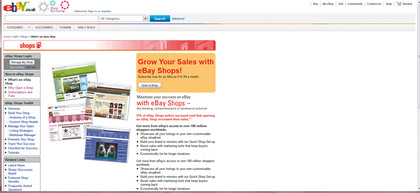
It's well worth building your own website if you can. Although you can have a website built professionally to your own specification, this can cost you quite a bit of money - depending on the scope of your project it can be hundreds, or even thousands of pounds. You can build your own from scratch if you have the knowledge, but if you don't this will involve investing time to learn the basics of website design and creation.
Fortunately, there are a lot of reasonably hassle-free ways to get a web presence. As well as the previously mentioned Google initative 'Getting British Business Online', Google Sites will let you create a website for free using a selection of templates and a WYSIWYG (what-you-see-is-what-you-get) website editor.
Google lets you build your own site, and you won't have to cover the cost of hosting your site or buying your own domain name. The domain won't look very pretty, but remember, if your business idea is gaining traction you can always buy your own domain name for about £20 (or get it for free from www.gbbo.co.uk) and point it at your Google site using web forwarding. This will give you a more professional URL, but still without the hosting costs.
If you use Dropbox, you can also use your account with the service to host your site for free. Just drop all of the necessary HTML and image files into the Public folder of your Dropbox, then log in to the Dropbox website, go to your Public folder and find your home page. If you click on it, it should open up as an HTML page in the browser.
If you look at the address bar you will see a Dropbox URL displayed (something like https://dl.dropbox.com/u/112897/index.html). Make a note of that URL. Now log in to the admin area for your domain name and enter that web address as the 'web forwarding' option. Although Dropbox doesn't mention any caps on the bandwidth being used by your Dropbox folder, it's probably best to limit this practice to smaller sites.
Wordpress, the blogging platform, will also let you build a site very quickly, and the many templates and plug-ins make it a very easy to get your idea on the web. Remember, you can start out small and get a professionally built website later if it looks like your business is gaining traction.
As your website is likely to be your business's only public face, you need to keep it updated and make sure it's working every day. Nothing will turn customers away faster than an outdated or broken website - it doesn't inspire trust, and without trust you won't make a sale.
You also need to think about SEO (search engine optimisation) for your website to ensure your business is listed as high up on Googleand other search engines as possible. It's worth using services like Google Adwords to see what phrases people are searching for to find businesses like yours, and incorporating these into your site. To learn more about SEO, check out www.seomoz.org/beginners-guide-to-seo.
Enter the market
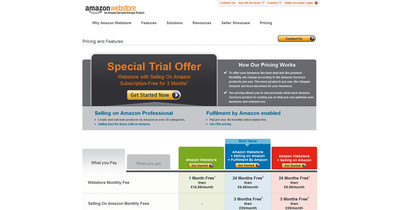
If you're considering selling products on your website, why reinvent the wheel? eBay and Amazon will let you set up customisable shops, and your products will show up in their search results, increasing your web presence to targeted shoppers instantly.
Sadly, these aren't free services, with monthly fees and/or cuts of your sales. However, Amazon is currently offering up to a 13-month subscription-free package, so you can try listing your products on Amazon for nothing. A basic eBay shop will set you back £14.99 a month, but it will give you a five-page web presence on the site and your shop will appear in eBay search listings. If you spend more, you get more marketing tools and your shop is featured in search listings more often.
Sell direct
If you're keen to avoid costs and instead want to create your own online shop on your site, it's worth considering how you want to receive payment.
Most web hosting companies will provide you with a shopping cart plug-in so you can accept credit card payments. If you don't want to pay extra for that functionality, PayPal will provide it with no setup costs or monthly fees, although it takes a percentage of each sale. All you need to do is copy and paste some HTML code into your website to provide a 'Buy now' or 'Add to cart' button.
Customers don't even need a PayPal account - they can just use PayPal to pay with their credit card. PayPal also lets you print out pre-paid postage labels for any packages that need to be sent, and can be added to most hosted shopping carts to give your customers a wider range of payment options.
We should point out that there have been some stories about PayPal not paying out money to people who the company feel have gone against their trading rules. PayPal isn't as regulated as a bank, so you should tread with caution if you're considering using it as your sole payment method, but this hasn't stopped it becoming almost ubiquitous as a way for small businesses to receive money.
Track your traffic
Once you've built your website, it's important to check who is visiting it, how they're getting to it and where they go afterwards. One of the easiest (and cheapest) ways is Google Analytics. By putting a little bit of JavaScript into the HTML of each page on your website, Google will track how many people have been to your site, where they came from, what they entered into a search engine to find you, and even provide heat maps which show you where people have been clicking on each page, all for free.
With a little analysis, Google Analytics can really help you understand which bits of your website attract traffic, and which are dead ends for customers.
Profit from ads
Don't forget to embrace other possible revenue streams, most of which are free and very simple to set up. You can put advertising panels on your site very easily, for example. If you're writing about products and providing a link to buy that product from stores other than your own, it's worth signing up to an affiliate scheme to make money from those sales.
It's always good to diversify, and although affiliates and advertising are unlikely to make you a lot of income at first, it's money for doing virtually nothing.
Affiliate schemes pay you for generating traffic to a retail site. If you have a link to an Amazon product page on your website, for example, you can sign up for an affiliate scheme with Amazon and generate URLs containing tracking codes. Use these URLs to link to the product pages, and if someone buys that product after coming to Amazon from your website, you are given a cut of the sale. Essentially, you're making money from a link you had there already.
It's possible to sign up to an affiliate scheme with most of the major retail websites, but an easier way to make money from affiliates is to use an aggregate affiliate site service like Skimlinks.
Services like this provide a lower payout, but mean you don't need to generate your own special URLs when linking to products. Your website needs to exist before you begin though, as Skimlinks will evaluate it to see if you are a merchant it wants to deal with before you can sign up.
Adding advertising to your site is also very easy. One of the simplest ways is Google Adsense. It's free to sign up and hassle-free to implement.
Communication
You usually get an email address with your domain name and hosting deal, and online webmail clients like Gmail and Hotmail let you consolidate your personal and business accounts in one place online. This means you can access and answer your business email from anywhere, and avoid the cost of having to buy a mail client like Outlook. You can set these services up so that you always reply using your work email for a professional look.
You can also embed instant messaging services onto your site, usually for free, allowing customers or clients to chat to you instantly if you're online. You can even use apps to send instant messages from your phone. If you want to do this, check out Microsoft's Windows Live Messenger Developer Guide.
It may also be worth getting a dedicated phone line for customers and business contacts. This means you can answer your business line professionally, and separate business from personal calls. This comes at a cost, but a phone number on a website can provide extra trust.
Social media
Don't be afraid to use social networks to keep in contact with your customers, as there is mounting evidence to suggest that this is what they want. Increasingly, people expect to be able to converse with their bank or shop online - not just via email or a site-based instant messenger, but through Facebook and Twitter too.
These days customers expect companies to reply to tweets about their service (positive and negative), and for comments on business Facebook pages to be answered. They also expect this response to be swift.
This is supported by a report called The Future of Customer Service, co-authored in January by internet bank First Direct and strategic social media agency It's Open. As It's Open founder Justin Hunt said,
"This report confirms what we have been hearing anecdotally over the last few months; the days of holding for ages to talk to a call centre adviser who can't make a decision are about to be left behind. Customers now expect to be interacting and collaborating online with the brands they do business with. 2012 looks set to be the year of the social customer. It's up to companies to catch up, engage with these valuable brand advocates and make the most of the opportunities offered by social media. Companies are moving on from 20th century models of customer service."
Don't forget that a presence on a social networking site is basically free advertising for the services you provide. You can make people aware of your business via a tweet or a Facebook page, and each of those people is a potential customer.
The more you can engage with people, and provide them with something they are interested in and want to share themselves, the more people are going to become aware of your services. This can be money-off deals, free advice or just showing off your products.
You should also target your social networking presence to reflect your business. For example, the image-led Pinterest site has been in the news recently for delivering a lot of targeted traffic to craft, design and photography websites. Pictures showing innovative and creative ideas are quickly shared on the site, and as each 'pin' links back to the originating website, one eye-catching picture could easily provide a thousand potential customers.
Offices
One potentially thorny issue involved in working from home is the need for a place to meet potential clients or customers. This isn't an insurmountable problem, as a lot of business meetings these days are already held in restaurants or pubs, and you can usually hire offices by the hour for meetings if it's absolutely essential.
If you foresee a lot of meetings in your business, it's also worth considering Skype, the video calling service. Skype-to-Skype calls are free to anywhere in the world, as is setting up a Skype account. This means you can chat with your suppliers or customers face-to-face without them having to travel to meet you, and you can also use it to collaborate with business partners online.
Talking of collaborating, it's worth bearing in mind that services like Google Docs allow online collaboration on documents, with two or more people being able to update text files or spreadsheets at the same time. This means you can work with people in different locations to create business proposals together without the cost of travelling. Tie that it with a free Skype account and you can talk about what you're creating through a video link too.
With all this help and infrastructure available online for free, there really hasn't been a better time to consider setting up an online business for yourself. If you've got the idea and the compulsion to do it, what are you waiting for?
- Check out the best website hosting services